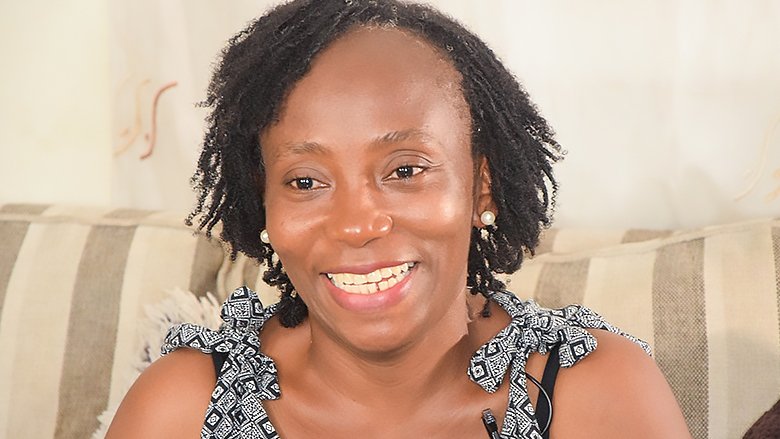A historical partnership to strengthen financial inclusion
The project also targeted decentralized financial systems (microfinance) that are often deemed too high risk, with a view to strengthening financial inclusion and enabling low-income earners to own a home.
According to Yombo Odanou, CEO of the Togo Savings and Loan Cooperative for Artisans (CECA-Togo): “Thanks to this historic partnership with CRRH-UEMOA, we now have the tools we need to manage risks associated with housing loans. The 10-year term on our housing loans is an incentive our customers find attractive.”
Kouamba, the Togolese businesswoman, used a mortgage loan to renovate and expand her family home in Lomé. “I am now living in my own home! I cannot begin to describe how overjoyed I am ...” she said, beaming with pride. She already has plans to build another house.
In Bamako, 35-year-old Dembele I., a marketing specialist, lives in his own house with his family. He stated that “After the difficulties we experienced while renting, my wife and I decided to build our own home. Today, we are pleased with what we were able to accomplish with the loan we got.”
More than 12,000 new homeowners, and greater resource mobilization thanks to IDA funding
For 86 percent of the beneficiaries—three quarters of whom are middle- or low-income earners—this was the first time that they had applied for a mortgage loan. Now more than 50,000 persons have discovered the joys of living in their own home. The new homes financed generated around 40,000 jobs.
Furthermore, the regional WAEMU Affordable Housing Finance Project helped CRRH-UEMOA raise $385 million in additional financing (more than double the IDA amount) through regional and international bond issues. This has attracted new investors and is contributing to the development of the regional capital market thanks to the long duration of the bonds, thus ensuring the continuation of the project's actions to finance decent housing. “This is a key impact of the project. This is CRRH’s very first regional bond issue since it was established in 2010. We have been able to increase and supplement concessional resources to allow our partner financial institutions to offer their customers more flexible terms and conditions”, said Ms. Ogoundele.
A new era of access to decent housing in the subregion has come, that will lead to the creation of thousands of jobs for small construction firms. As Boutheina Guermazi, director of regional integration for Africa and the Middle East, put it,

